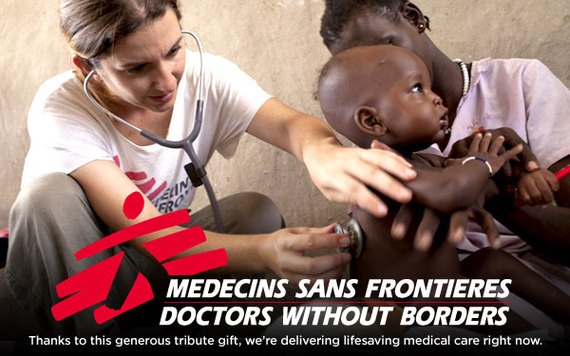Doctors Without Borders, MSF, Monday on warned of a decline in international funding and rapid shifting of the financial burden to affected countries after a decade of strong commitments to fight HIV and tuberculosis (TB).
The decline is in danger of reversing lifesaving gains and causing an “epidemic rebound” in some countries, MSF said in a report.
The goal of ending HIV and TB is still far from being achieved as the diseases, together, still kill upwards of two million people each year, MSF said.
In spite of this, donor and domestic funding for HIV programmes declined in 2018 for the first time in more than a decade.
The funding had dropped by $1 billion in low and middle-income countries, while the funding gap for TB programmes widened further, reaching $3.5 billion per year, MSF cited UN figures as saying.
“This recent downward trajectory in funding comes at a critical juncture for the HIV and TB response,’’ Dr Mit Philips, one of the contributing authors of the report, said.
“While gains made in countries such as Mozambique are at significant risk of backtracking, there is an even higher risk that countries in regions such as West and Central Africa, which are already lagging behind in the HIV and TB response.
“This may see the situation deteriorate even further.’’
Based on studies in nine countries, where MSF runs HIV and TB programmes, the report documents how international funding shortfalls and insufficient domestic resources available are already causing wide-ranging gaps in HIV and TB diagnosis, prevention and care services.
“Every day, MSF teams in these countries witness how patients are suffering and dying from these treatable diseases,’’ Dr Maria Guevara, another contributing author of the report, said.
“The number of people on lifetime HIV treatment keeps on expanding but the money available to support them keeps shrinking.
“With not enough drugs or support services available, many people are not starting treatment on time or are forced to abandon treatment altogether.
“Also, others must dig deep into their pockets to pay for drugs so as not to interrupt their treatment,’’ Guevara said.
All of this contributes to increased transmission, higher mortality, more treatment failures and an even higher prevalence of drug resistance, further increasing the cost of care for HIV and TB, he said.
According to the report, the impact of current HIV and TB funding gaps are underestimated and likely to increase, as vulnerable countries struggle to compensate for the decline in external financial support.
Even where the political will exists to contribute more, many countries are not ready to take on this responsibility in the short term.
Some of the countries reviewed in this report, such as the Democratic Republic of Congo, Guinea and Mozambique, are struggling with conflict or political and economic problems.
The report calls for a comprehensive assessment of relevant countries’ real ability to increase domestic health resources in the short term, given the impact of funding shortfalls on the lives of people living with HIV and TB and the ability of health workers to care for them.
Donor countries must urgently reverse the recent decline in HIV and TB funding and adapt their approach to the challenges facing their partner countries, now and in the coming years, said Guevara.
“Failing to fix this will undermine past achievements and may lead to an epidemic rebound that will cost many lives,’’ he warned.

